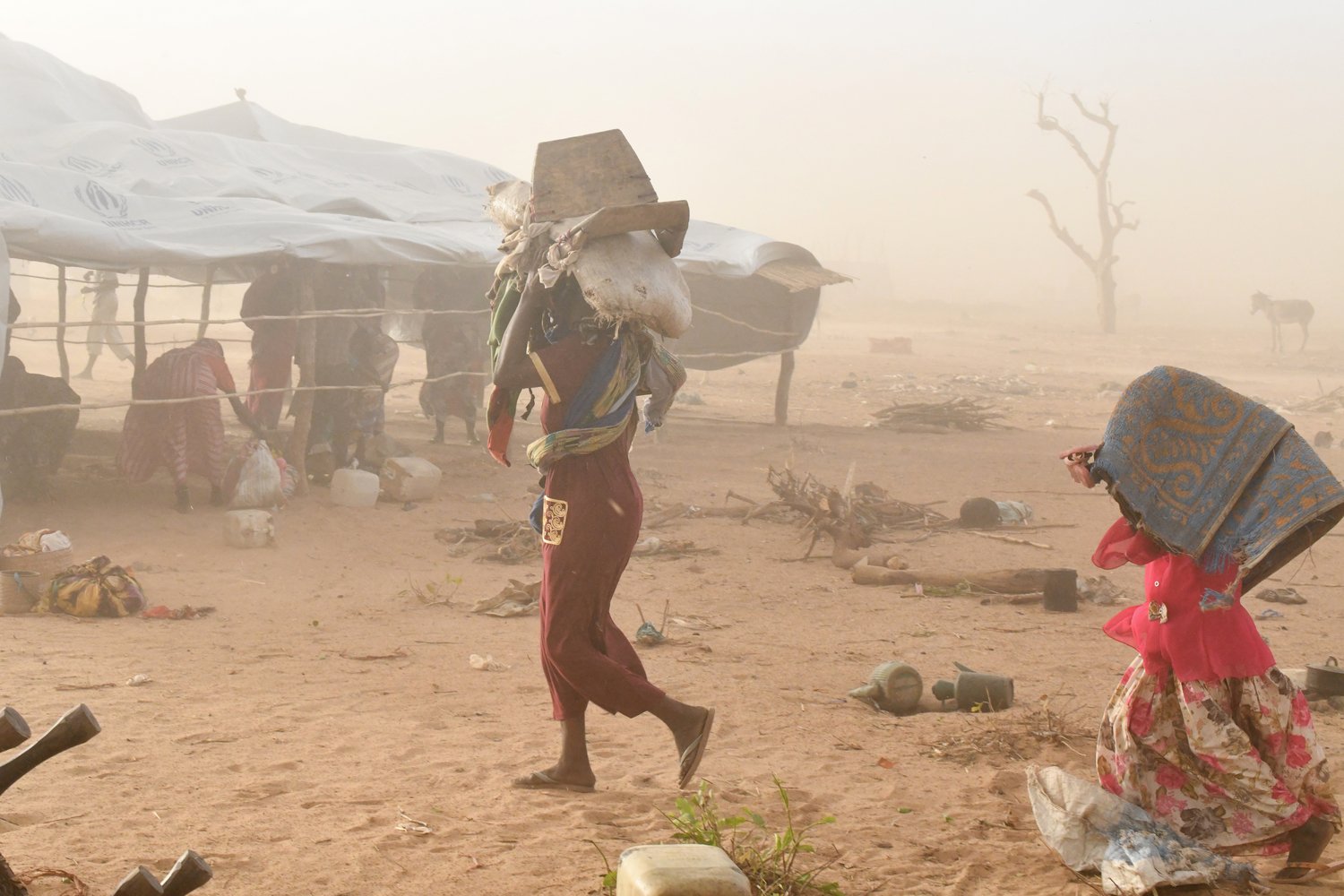Chad: new contributions from USA, Netherlands, Luxembourg, New Zealand
Chad: new contributions from USA, Netherlands, Luxembourg, New Zealand
UNHCR is airlifting nearly 180 tons of additional relief items from our stocks in Denmark to the emergency in eastern Chad starting early next week. Four flights by Ilyushin-76 will bring in more than 49,000 blankets, 10,000 pieces of plastic sheeting, 8,500 kitchen sets, 20,000 jerry cans, and four prefabricated warehouses. At the same time, we are continuing our series of 22 flights of 16,100 tents from Pakistan, with the eighth flight due to arrive in N'Djamena today. To date, UNHCR has airlifted more than 2,000 tons of supplies to Chad since the beginning of the year.
More than 120,000 Sudanese refugees have so far been transferred from the border to refugee camps in Chad and the operation continues. We plan to open a ninth camp in eastern Chad next week, with the first convoys of Sudanese refugees from the Chadian border town of Bahai to the new camp at Oure Cassoni scheduled for Monday. Three buses and 13 trucks will be used for the relocation operation. UNICEF and the International Rescue Committee are scheduled to complete a polio and measles vaccination campaign in Bahai today. They also began vaccinations in nearby Cariari on Wednesday. The campaign is aimed at children from 5 months to 15 years old.
In Bahai, our teams report sporadic new arrivals of refugees from Darfur. On Wednesday, three families totalling 30 people, mostly women and children, arrived in Bahai and began settling in near the wadi (seasonal river bed). They told us that they came to Chad because they had run out of food in the mountains where they had been hiding for months and because they heard that their relatives were in Chad. The families say they initially fled their village of Aboulia six months ago when it was attacked by three planes and more than 100 militia on camels and horses who shot at people in the village, stole cattle and burned houses. One woman said she witnessed militia raping girls in the village during the attack and that four girls were kidnapped and have not been heard from since. The refugees said that 50 families escaped and walked for two days to the mountain where they stayed for three months, living on mukhet seeds. They said they were then again attacked by militia and fled once again, walking for a day and a half to another mountain where they had been staying until the food ran out.
Further south in the Chadian border zone, more refugees have now arrived at the site of Am Nabak, where refugees have been heading on their own from locations on the border. A few days ago, some 600 refugees arrived from the border town of Tine and another 300 came from the town of Amdour. The refugees rented two trucks to make the trip to Am Nabak. We and our partners are assisting refugees on this site, making regular distributions of food from the World Food Programme and providing plastic sheeting. Oxfam is trucking water to the site from Iriba and Moudre. We have offered to transfer the refugees to the camp at Mile, but the refugees have turned down this option because they say they want to remain near their relatives in the village of Am Nabak. Some 6,000 to 7,000 refugees are now at the Am Nabak site.
In Touloum camp, on Wednesday, we initiated a refugee women's committee to give women an opportunity to express their needs and concerns, as very few women are so far part of the official refugee structures in the camp. About 80 percent of the refugees staying in Touloum are women and children. One woman per block of 90 tents will be designated to take part in the committee and will report on any problems or concerns among the women living in each block. We also hope that the women's committee will encourage women to report any physical or sexual abuses they may be facing in or outside of the camp.
Of the $55.8 million we need for our efforts in Chad, we have now received nearly $27.8 million, including recent contributions of $8 million from the United States, $555,000 from the Netherlands, $121,803 from Luxembourg, and $636,943 from New Zealand.








